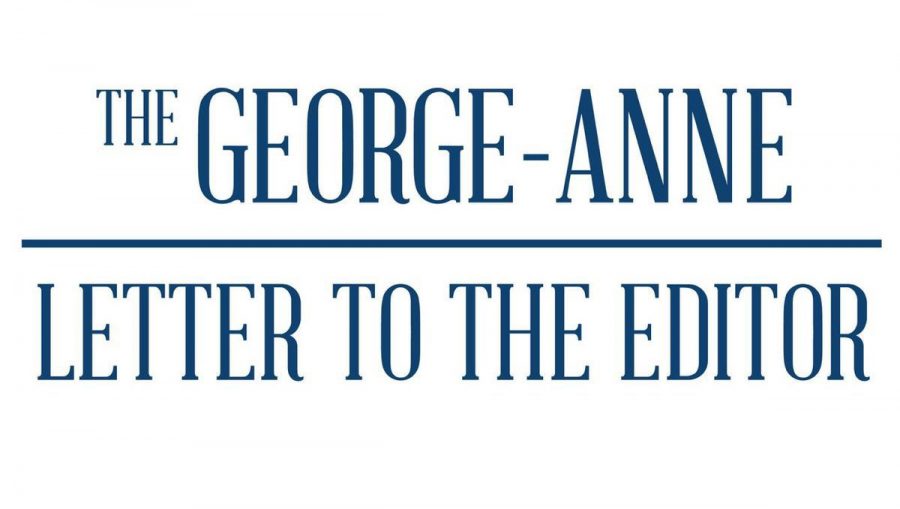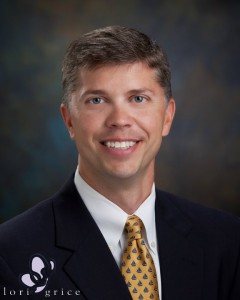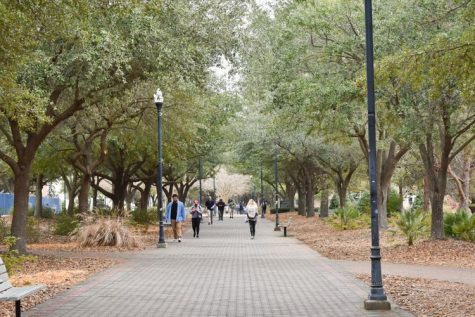Letter to the Editor: “An Open Letter to the Georgia Southern Community”
September 2, 2020
We, the Georgia Southern University chapter of the American Association of University Professors (AAUP), write to express our grave concerns regarding the current state of our university, highlighted by the 508 new positive cases reported for the week of 8/24- 8/31/2020. As the vast majority of these cases are in Bulloch county, Statesboro currently ranks 5th in the nation in new cases as a proportion of population. The AAUP is a non-profit, national professional organization dedicated to the principles of academic freedom and shared governance. The Georgia Southern chapter of the AAUP has been active for several decades, and our current membership includes professors across all colleges and multiple campuses of the university. As we have moved into the third week of the semester, our membership has closely followed the status of Covid-19 cases on our campuses and has heard concerns from many students, staff, and faculty who are reluctant to speak publicly. Our chapter, along with non-AAUP colleagues who have contacted us, have identified several concerns related to the university’s response to the global novel coronavirus pandemic impacting our communities. Below we outline three primary concerns along with our recommendations for addressing them.
- Covid-19 Testing: We thank the administration and University Health Services for providing relatively low-cost testing to students. We urge the university to expand testing as much as possible, both to shorten increasing delays in test availability (some students have reported waiting nearly a week to get tested) and to protect all residents of Bulloch, Chatham, and Liberty counties. We implore the university to take immediate action on testing, especially in response to the August 23, 2020 White House Coronavirus Task Force report on the state of Georgia.
- Covid-19 Positive Case Reporting: We applaud the administration for its decision to report positive Covid-19 case numbers. We hope that the reporting will soon display critical data including the number of persons quarantined and percent positive test rates. In the interests of transparency and safety, all Covid-19 data should be reported on a daily basis.
- Student, Staff, and Faculty Safety: We applaud the university’s decision to make alternate work and learning accommodations available to more members of our community. Despite these and other health and safety efforts, many members do not feel safe coming to our campuses. Faculty members are receiving emails daily from students who live with an at-risk person in their household, and/or simply do not feel safe on campus despite the university’s efforts. Yet, without medical documentation stating they are in a high-risk group, faculty have very few options to help these students, given the administration’s direction to provide accommodations only to high-risk students (this is also the case with many faculty whose requests for remote teaching were denied on similar grounds). This micromanaging of faculty teaching by the University System of Georgia enforced by the Georgia Southern administration serves as both a threat to public health and a violation of academic freedom. We urge the administration and the University System of Georgia to allow faculty greater flexibility in conducting their courses, especially regarding the mode of delivery.
The Georgia Southern chapter of the AAUP calls on the university administration to contact USG Chancellor Wrigley to request a move to fully online instruction. As of August 31, 2020, Georgia Department of Public Health reports a skyrocketing of Covid-19 cases in Bulloch County, with 735 cases/100,000 persons, up from 266 on 8/23/20 (a 176% increase). We ask the administration to take this action to demonstrate its stated commitment to prioritize the health and safety, not only of the university community, but also the broader Statesboro, Savannah, and Hinesville communities. It is not hyperbole to suggest that the lives of Georgia residents living in these locales are in the hands of USG Chancellor Wrigley and the Georgia Southern administration.















Stephanie Copenhaver • Sep 12, 2020 at 8:57 am
KEEP SCHOOLS OPEN. Death rate is EXTREMELY LOW and dropping lower. Suicide is surpassing covid #’s!
Say goodbye to the university system if they move to all online. It will never survive, students will quit, parents WILL NOT PAY.
End goal, live life to it’s fullest. The virus isn’t going anywhere. Keep moving!
Debra Craft • Sep 10, 2020 at 5:44 pm
I believe you could keep college open if the bars would remain closed. Maybe monitor the student gathering in large groups in the dorms. My daughter and many are abiding by safe practices because they are serious about their education. Those who have been careless should be sent home for the entire semester. Fine the business for not complying with safe distancing guidelines. Keep the college open for students who are well and following the rules.
Laura Myers • Sep 10, 2020 at 1:08 pm
As a parent, I feel strongly that students should remain on campus and have as much face to face instruction as possible. Accommodations can be made for specific situations related to high risk individuals. Please note that GA Southern students are absolutely committed to #doright as the numbers at similar sized universities are more than double. Furthermore I question the severity of the illness as it relates to students. The number of positive cases has gone up but the number of hospitalizations has not.
Do not shut campus down. Please. I can’t help but wonder how many students won’t be back if you shut it down now.
Liz Roberts • Sep 10, 2020 at 8:15 am
Keep the schools open! Remove the masks and allow these young adults to get their education and all college has to offer!!! These are our future leaders!!
ENOUGH ALREADY!
Denise Sperier • Sep 10, 2020 at 8:15 am
This is ludicrous! We are moving forward not backwards. If anyone can teach safely, its college professors! We are paying a lot of money for our kids to have an education and they are basically teaching themselves right now! It has been proven that masks and social distancing work so everyone needs to stop whining and get back to the classroom!
Lora Lemons • Sep 9, 2020 at 11:39 pm
If all instruction is moved to online, then a large part of the fees charged need to be refunded. There is no way that Georgia Southern could not have anticipated the large increase in cases. They allowed Fraternity and Sorority pledging to continue and while many of the initial pledging was done virtually, social media was full of group photos, parties, etc, with no masks. Southern’s local bars had 2 hour waits to get in, no masks and young adults having fun. It’s what college students do. Sports are still continuing, where masks can’t be worn, etc.
As a parent of 2 students, 1 of which being a freshman who was required to live in a dorm and pay a very high cost meal plan, I feel that going to all virtual now, with no plan of moving students off campus or providing them any further protection is truly detrimental to the education Southern is being paid very well to do. In addition, the mental health of many students will be a tremendous concern. A young 18 year old, moving away from all that is familiar for the very first time, wanting to make friends and excel in college is now sitting in their very expensive dorm, alone, trying to learn in a style that may or may not be a fit from a professor that may or may not be responsive to providing help, be available for questions or even actually interact with the students. (I say this based on the many comments made by students already this semester).
On top of all this, many quizzes and tests require additional fees for a proctor. The tuition and fees were higher than ever before, while providing far less. For example, I signed up for a food plan during the pay for Blue, get Gold. It was listed as unlimited, 8 guest passes, dining dollars. Right before classes began, the same plan went to 19 swipes a week (does not even cover 3 meals a day for a week), no guest passes and no change in dining dollars. You are no longer allowed to get “seconds” on certain items, the choices are limited from previous years. I understand the changes to how things are served and losing guest passes, but reduce the cost or add more dining dollars.
I could go on with all the things that are not available that fees were charged for. The only people that benefit from going all virtual are the professors. While it’s a scary world out there, the decision was made to move all those students in to campus despite Covid numbers rising in the State of Georgia. Now that they are there, they deserve to be taught in the same manner they would if Covid didn’t exist. Professors are getting paid the same amount whether virtual or in person. Students are losing out in valuable instruction, learning from peers in a class setting, learning how to interact with a diverse group of young adults and make new friends. You cannot get that sitting in a dorm room alone. Please don’t go all online. Georgia knew this was coming. The time for this decision was before moving on campus and charging all those fees. It’s not in the best interest of the student to move to all online classes and the student is the focus.
Jill Zammit • Sep 9, 2020 at 6:21 pm
Seriously? Where are the educators? This virus has a 99.8 survival rate. Take responsibility for your immune system. Enhance what you think is so broken that you can’t fight this. You can do it.
Kim Skaggs • Sep 9, 2020 at 6:08 pm
It is clearly not in the best interest of the students to continue to socially isolate. Many universities and even private schools are making accommodations and have been very successful in protecting the faculty. Online classes are not the answer. They are not well organized or monitored and frankly, not the most efficient way to learn. Please consider other options and allow the students to have the best possible education.
Gideon Ticha • Sep 6, 2020 at 9:54 pm
Support
Nasty AL • Sep 4, 2020 at 11:11 pm
Corona virus is literally not a big deal. If we just let it run it’s course you guys could quit being crybabies about a non deadly virus. Btw, viruses don’t go away. The flu is still a thing even though we have vaccines for it. If corona doesn’t have a vaccine and it’s supposedly more contagious than the flu, that means it’s never going away. I have already stopped wearing my mask. Grow up. Get an immunity and quit bitching. Nobody cares.
Michel Belland • Sep 4, 2020 at 5:15 pm
Dear folks,
How about supporting parents and students. Professors should be teaching in class and working like other professionals. Fire fighters are at work, nurses and doctors are at work, factory workers, mechanics, retail staff are all at work. What makes teachers special?
The George Anne is asking for professors to contact them. Why are you not asking for parents to contact? What’s your agenda?
Denise Wheatly • Sep 3, 2020 at 8:38 pm
I begin with that I find it appalling that the professors consider their health more important than anyone else working with the public.
Parents and students are paying full price for classes and room and board and are receiving online classes, isolation, limited choices for dining, activities taken away and continued changes to rules and protocols for Covid. These students are adults and have clearly made the decision to live on campus and have F2F classes regardless of Covid. The public universities should have told parents and students in a timely manner, weeks before move in, that classes would be online as well as clearly stating the Covid rules and protocols. The GA public universities were not prepared (after having all summer) and the students and parents are paying the price from their lack of preparation.
I believe if the public universities do not support the parents and students with in person classes and keeping campuses open this semester, they will find their campuses empty next semester with students choosing to just stay home to take their classes online or transferring to private colleges. The public universities are creating a strong market for private schools. My daughter is the perfect example. She left KSU the first week of school, this semester and will be transferring next semester to a private college. She felt with all her classes going online and the constant changes to Covid protocols and rules that it would not benefit her mentally, academically, or financially. I applaud her for making this disappointing decision. Shame on the GA public university system for not being better prepared and upfront with students and parents prior to move in.
Karen Brown • Sep 3, 2020 at 7:18 pm
Please DO NOT go to all online classes. It is not what’s best for the students. Professors don’t need to get within 6 feet of their students. There is plenty of space to social distance. Students & professors can wear masks in class.
There is no way students can learn what they need to learn by only reading materials or looking over powerpoints. They need interactions with professors and other students. They can get these interactions while staying safe, but they MUST occur for learning to take place.
We are paying too much money and our kids are investing too much time to simply be told to go read a book or watch a PowerPoint.
We all knew the risks when we signed up. Allow the professors who want to teach, teach. Tell those who want to stay home to stay home, but they don’t get paid for just phoning in assignments.
Students who want to learn will show up. Those who aren’t comfortable right now can put classes on hold for a semester or two. There’s no need to make those who are ready, wait any longer. They are willing to come learn from whoever is willing to come teach them. Please don’t shut them down.
Thomas Carey • Sep 3, 2020 at 10:10 am
It was pretty asinine and lacking common sense to open the school to in-person classes and expect anything different. Our son came home last Friday for his birthday and by Saturday was having symptoms. After being tested twice, first was a rapid test that was negative, then went to the health department on Monday and tested positive. I tested negative, however I was having the same symptoms so I’m guessing it was a false negative. His mother was tested on Monday and it came back positive. So we’re quarantining and unable to carry on with our life for the next 2 weeks. Just go to online classes and take money out of the equation and replace it with good public health practices. Unless the decision-makers are willing to step into the front lines of exposure they need to think of the good of their students, faculty, admin staff and students’ parents and extended family.
Kelly McGeehan • Sep 3, 2020 at 9:40 am
No!!!! Students should be in school! The university should offer face to face instruction. College kids and their parents want universities to remain open! As a public school teacher, I am working. Professors should too!
Raven Waters • Sep 3, 2020 at 7:55 am
As a person that just graduated in 2019 at Southern, if I were currently enrolled, I would have to suspend my classes. The administration needs to do what is best for the community, students, and faculty, in person classes are not what is best. What is your cutoff number before you change to all online classes, how many positive cases, how many deaths are acceptable?
Michelle Auto • Sep 3, 2020 at 7:51 am
I have worked as an “essential employee “ since the pandemic started. I feel Teachers and Professors are much more essential than I am. I go to work everyday or I do not get paid. This is getting ridiculous! My Daughters classes were basically switched to almost all online or with the option of online once she moved into her dorm as it is. If public schools can open for face to face learning so can colleges and universities! As parents we are paying a lot of money for you , Professors, to TEACH our children … right now they are teaching themselves! If you don’t want to teach in person than maybe a pay cut should be in order and a refund for parents as well.
Remember masks work… so wear a mask, wash your hands, don’t touch your face or put your hands in your mouth and you will be fine. But go back to work and teach in person!
April Walker • Sep 2, 2020 at 8:00 pm
I support the Professors. When the school releases their covid plans they made it seem like they had implemented plans on how to handle the virus – this has not been happening. Students can’t get appointments to get tested. Students with covid are not being quarantined. It’s insane! I would be happy to bring my child home but she still has eon person classes. Please at least give the students another opportunity to go all online.
Zachary Boynton • Sep 2, 2020 at 5:34 pm
Hello, I am concerned (as are others) about my health when attending class in person. I live with three other people and they do not have to attend any on campus classes. Since, I am a senior at Georgia Southern I have to go to campus for some of my academic courses. This makes me hesitant because both of my parents have been sick for quite a while. This means that I am unable to go home unless I quarantine first. I would like to see classes go online personally for the safety of the students, faculty, staff, and their families. Please do whatever you can to help all of us out, so that none of us get this virus.
Janis Cummings Cummings • Sep 2, 2020 at 5:07 pm
Professors are also not being provided cleaning supplies nor Lysol for their classrooms to be cleaned from previous classes being conducted earlier in the day. Professors are being required to purchase their own thermometers to check students temperatures prior to admission to the classroom. These measures should have been provided for prior to the beginning of classroom instruction on August 17th.